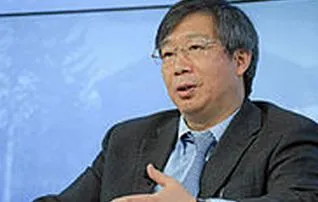
China to continue currency and banking reforms
Might also relax tight capital controls this year.
China will continue its currency reforms to allow more flexibility in the renminbi’s exchange rate as its value nears an equilibrium.
Yi Gang, Director of the State Administration of Foreign Exchange and Deputy Governor of the People's Bank of China, claims PBOC has reduced intervention in the foreign exchange market to ensure the renminbi’s stability.
"We will continue to reform and open up. I'm confident that the renminbi exchange rate will be more balanced and flexible and basically stable," Yi said. The renminbi exchange rate is closer to its equilibrium.”
Foreign analysts said government remarks the renminbi is near its equilibrium seem contradicted by data that appears to show demand for the renminbi might be rising again.
China's central bank and commercial banks bought a record US$110 billion in foreign exchange in January. The all-time high purchase indicates capital is flowing back into China.
Massive foreign exchange purchases by PBOC and commercial banks are tantamount to base money creation that can spur inflation. Preventing this means PBOC has to remove the excess renminbi injected into the system.
Other analysts believe PBOC is about to use huge offshore holdings of its closely-controlled currency worth around US$160 billion to relax capital controls.






![Lorem Ipsum [ABF 1]](https://cmg-qa.s3.ap-southeast-1.amazonaws.com/s3fs-public/styles/exclusive_featured_article/public/2025-03/a_hand_pointing_to_a_futuristic_technology_5b87c9d0e3_1.png.webp?itok=2w0y1WhS)


![Cross Domain [Manu + SBR + ABF + ABR + FMCG + HBR + ]](https://cmg-qa.s3.ap-southeast-1.amazonaws.com/s3fs-public/styles/exclusive_featured_article/public/2025-01/earth-3537401_1920_4.jpg.webp?itok=WaRpTJwE)








 Advertise
Advertise

